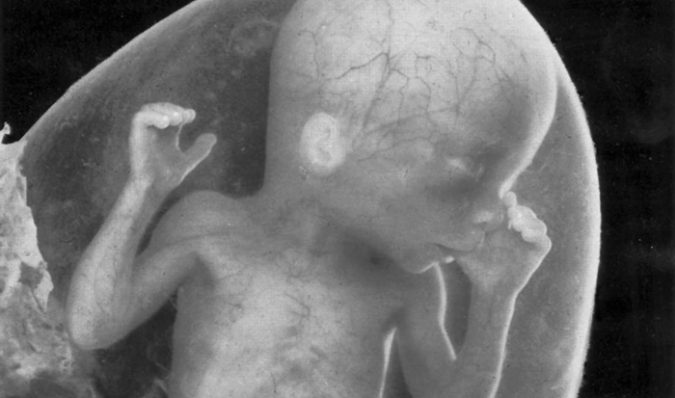Rita was a young, student nurse working in a London hospital in the 1970s. She describes herself as an “Irish country girl” who did not know what she would be expected to do in her training. When she was required to care for a woman undergoing an abortion, she was confused and unprepared. Rita describes vividly the first time she witnessed an abortion:
One case which is indelible in my mind was that of a married woman, who was admitted for a termination of pregnancy. She had two healthy children and was now pregnant with baby number three. She did not want any more children. I was asked to do the medicine round that morning and I gave her the prostaglandin tabs prescribed.
Hours later she requested a bed pan and then passed a live foetus approximately the size of the palm of my hand. It certainly was a human being. It had limbs, a head, eyes and a heart that was beating strongly and visibly. The mother saw the contents of the bed pan as did I. The image of that little baby has never left my mind.
Decades later, Rita is sharing her story as part of the #MyAbortionStory campaign in Ireland. As Ireland prepares to vote on a referendum that would pave the way to legalizing abortion on-demand through all nine months of pregnancy, Rita and other medical professionals are speaking out about what legal abortion means for people who work in health care. Despite abortion activists’ claims of conscience protections for pro-life medical professionals if abortion is legalized, the reality of legal abortion is that doctors and nurses are thrust into situations in which a child’s life is ended violently and they cannot intervene to care for the child.
Reflecting on the first time she cared for a woman during an abortion, Rita says, “Instantly my inadequacies became very real… what to say, what to do with this little human being to be disposed of in the bed pan. My short training did not prepare me for this.” Rita is far from alone in her experience, which prompted the pro-life group Save the 8th to launch the #MyAbortionStory campaign, featuring the stories of medical professionals who, like Rita, witnessed or were coerced to participate in abortions.
Caren Ní hAllacháin’s story has been one of the most shocking stories publicized by the campaign thus far. Caren is a nurse who witnessed a baby who survived an abortion and was left to die. Save the 8th released a video of Caren’s story that has received attention on social media.
Less than two weeks after the video’s release, it has been viewed more than 200,000 times. Niamh Uí Bhriain of Save the 8th pointed out that the views and shares of the video are “almost all organic and Irish.” In a time when international abortion groups are putting money into the campaign to legalize abortion in Ireland, Save the 8th’s video is reaching fellow Irish voters with the truth. Niamh said of the comments on the Facebook video, “You can see lots of people tagging friends to watch, and this is the sort of engagement that is really changing hearts and minds.”
Along with the video and the stories shared online, the #MyAbortionStory campaign has released billboards nationwide directing people to watch the videos online. A representative of Save the 8th says reaction to the campaign has been “tremendous.” Niamh explained to Live Action why the campaign has been so powerful, saying, “Irish people have not been aware of the reality of what nursing staff have seen in regard to late-term abortions, nor are they aware of just how exploitative and ugly the industry. #MyAbortionStory is opening people’s eyes to that reality.”
Rita elaborates on the trauma she suffered after witnessing an abortion: “I tried to block what I saw out of my mind, but this was impossible and all my life since I have visions of that poor, innocent, defenceless baby fighting for life in that bed pan, without dignity, love or concern.” This life-changing experience is what motivates nurses like Caren and Rita to speak out against legalizing abortion. Abortion activists have tried to paint the pro-life movement in Ireland as a relic of a religious past, but Rita is adamant, “It is my life experience that has led me to the view that the 8th must be saved, not some religious ideology.”
Indeed, abortion is the brutal ending of a preborn human being’s life, no matter the stage:
The reality of abortion, the ending of a human life, cuts through the pro-choice rhetoric and shows the violence for what it is. The eyewitness accounts of nurses like Rita show the humanity of the preborn and the injustice of abortion.







